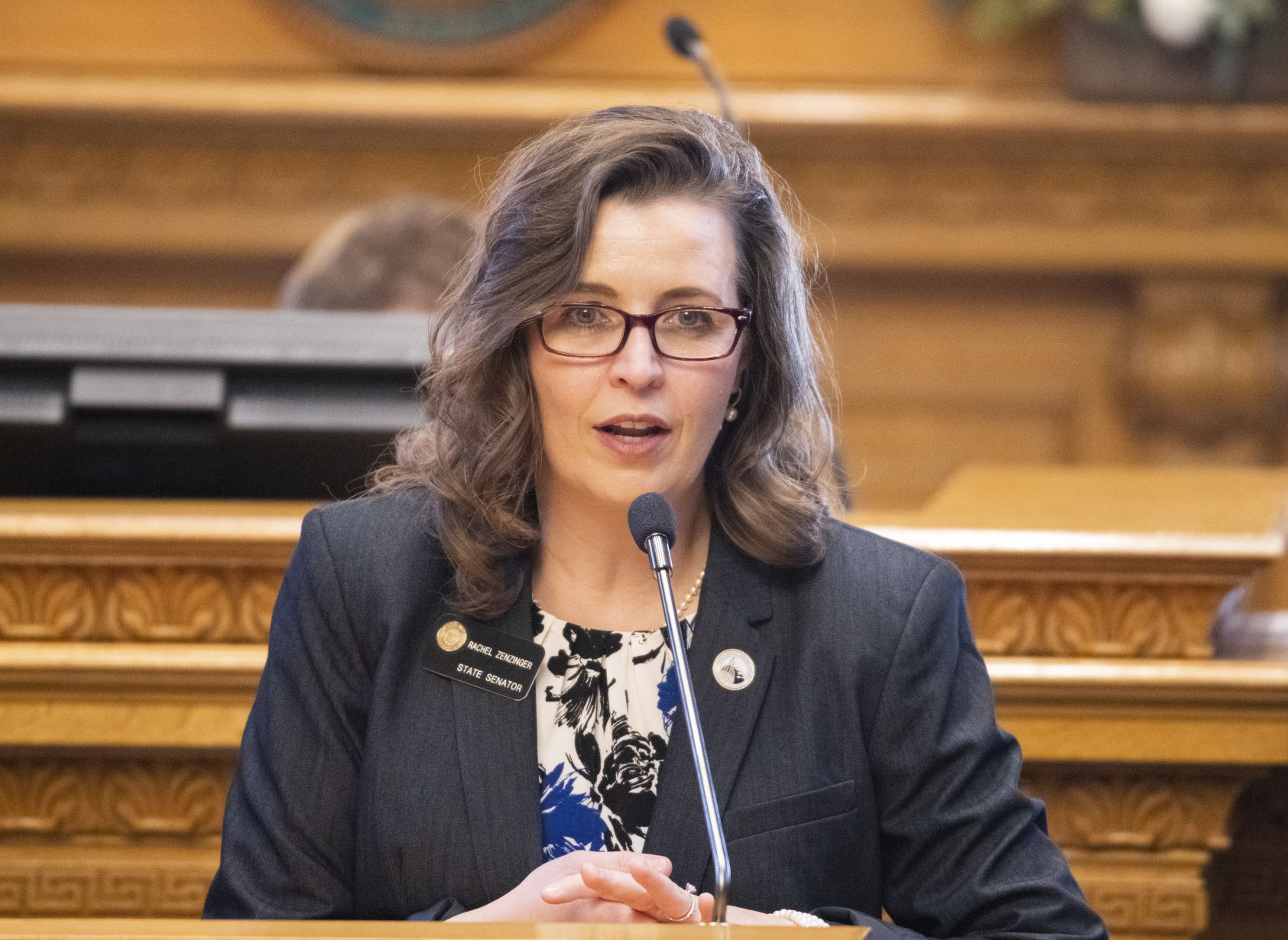Colorado’s powerful budgeting panel gets to know the budget, each other

The bipartisan panel that annually crafts the state budget met Monday to kick off its work with four new members, as well as new leadership.
The Joint Budget Committee elected as chair for the upcoming legislative session Sen. Rachel Zenzinger, an Arvada Democrat who has not always seen eye-to-eye with Gov. Jared Polis, or even some of her fellow Senate Democratic caucus members.
Zenzinger’s time on JBC is not unlike her time in the state Senate, where she’s term-limited in 2024.
She first joined the Senate in 2013, replacing then-Sen. Evie Hudak, who resigned rather than face a recall election tied to Democratic votes on gun control. Zenzinger lost the Senate seat in the 2014 election to Republican Laura Woods but beat Woods in a rematch two years later.
On JBC, Zenzinger began serving in 2019 with an emphasis on the issue of education funding. But in 2021, she was replaced – and not by choice – by Sen. Chris Hansen, D-Denver.
A shuffling of leadership in the state Senate last year kicked off by the resignation of Senate President Leroy Garcia to take a role in the Biden administration left an opening on the committee. Zenzinger went back to JBC to last year, and was elected by the Senate Democratic caucus last week for another term on JBC.
Zenzinger on Monday was officially elected JBC chair, given the chair of the committee rotates between chambers and was set to return to the Senate. The committee on Monday elected as its vice-chair Rep. Shannon Bird, D-Westminster.
The committee’s makeup of four Democrats and two Republicans reflects the Democratic control of the state House and Senate.
Also on the committee – and new to the JBC – are Republican Rep. Rod Bockenfeld of Watkins; and Rep. Emily Sirota of Denver and Sen. Jeff Bridges of Greenwood Village, both Democrats.
The committee’s senior member is Republican Rep. Bob Rankin of Carbondale, who will begin his tenth year on the committee in the 2023 session.
Monday’s organizational meeting provided members an overview of the panel’s processes and the impact on the state budget from ballot measures voters approved last week. Those include Proposition 121, which reduces the state income tax and subsequently the general fund dollars available for the state budget and potentially for TABOR refunds; Proposition 123, which will set aside about $300 million in TABOR refunds per year for affordable housing initiatives; and Amendment E, which allows the property tax exemption currently available for seniors and disabled veterans to be extended to the spouses of veterans who died from service-related injuries or disease.
During the next two months, the Joint Budget Committee will hold briefings and hearings on each department in state government, plus the Public Employees Retirement Association.
Briefings, which take place first, allow JBC analysts to talk to the committee about the previous year’s budget and issues the committee should consider. Hearings bring in departmental leaders to address questions from the committee and make their pitch for additional funding in the next budget year.
Once the legislative session begins on Jan. 9, the JBC also will meet with the committees of reference that have oversight responsibilities over state departments.
Gov. Jared Polis will sit down with the committee on Tuesday to review his 2023-24 budget proposal. Polis has recommended a budget of more than $42 billion, about $6 billion more than in 2022-23.
The governor’s proposal forms a template for the 2023-24 budget, but the committee will make its own decisions on what and how to fund state government. The committee will rely most heavily on two quarterly revenue forecasts, which will take place in December and on March 20.
The JBC also has the responsibility of looking at supplemental appropriations requests from state agencies, which it will start reviewing in January. Those requests – which can either be for funding increases, or in some cases, for funding decreases – turn into bills known as supplementals that have a deadline for introduction of Feb. 6 in the legislature.
After the supplementals are completed , the committee will begin in earnest making decisions about the 2023-24 state budget. The committee is bound by state law to budget only for what’s already in statute; it is not supposed to budget for new programs that may be set up in statute in the 2023 session. However, the JBC sets aside money within the budget to cover costs for those potential new programs.
The committee has a deadline of the 78th day to introduce the 2023-24 state budget, known as the Long Appropriations Bill. That’s March 27, although if the committee needs more time, the rules can be adjusted to allow for that.
The long bill will be introduced this year in the state Senate, given that the JBC’s chair is from the Senate. The deadline for final passage in the House is April 7, a month before the session ends. The governor then has 10 days to sign or veto any part of the budget.
Governors traditionally do not veto specific department appropriations, although they will sometimes take issue with directives from the General Assembly on spending for specific programs rather than departments. Governors have, from time to time, vetoed those directives.
That’s led to conflicts between the governor and the General Assembly. In 2006, the Colorado Supreme Court said the governor did not have the right to veto headnotes, which in the long bill define programs. The court also said the legislature did not have the right to tell the executive branch how to spend its money, labeling it a separation of powers issue.
The last time a veto was issued and overridden by the legislature was in 2007 when Democrats had the trifecta: control of the General Assembly and with a Democrat as governor.
The JBC, and by extension the General Assembly, does not control the number of state employees. While each department reports to the JBC the number of full-time equivalent personnel, the legislature only controls the funding for those positions and has no say on whether departments add or eliminate positions.














